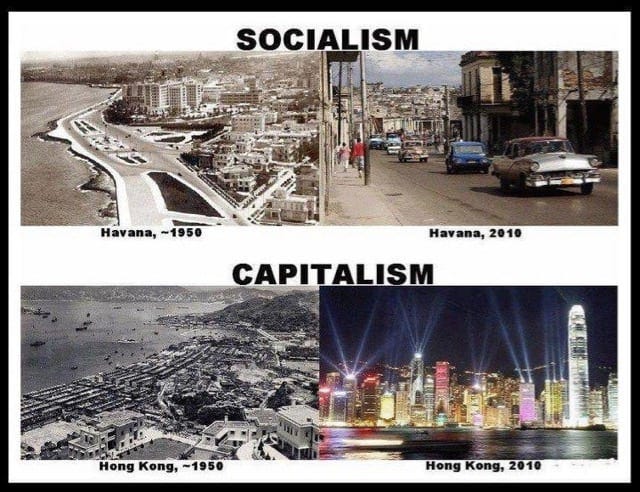A Tale of Two Cities, in Pictures
The glory that is Hong Kong, the tragedy of Havana.
by Rod D. Martin
October 10, 2015
The glory that is Hong Kong is even more breathtaking than the tragedy that is Havana.
Prior to the "Socialist Revolution," Cuba was one of the most advanced and successful countries in Latin America. In 1960, as Castro was consolidating power, Hong Kong's per capita GDP was just $429, about half of Cuba's (for comparison, U.S. per capita GDP was $2,881). Indeed, Cuba's per capita GDP was more than twice that of Spain's! Today, Cuba sits at a little over $6,000 (you try living on that). Hong Kong? $42,000, not greatly less than America's $55,900 and more than Germany's $47,800. Spain? Even in crisis, $30,300.
So while the Iberian motherland was growing its economy 78-fold, and Hong Kong was multiplying its people's fortunes an incredible 100X, Cubans notoriously drive cars left over from the 1950s, on once-paved streets now gravel.
Socialists always believe that civilization has hit a plateau -- everything has been invented -- and there is no such thing as…



